Vanina Machado
Vanina Sofia Machado is a PhD candidate at the Spanish and Portuguese Department, University of Toronto. She is Uruguayan and Canadian and her interests focus mainly in sociolinguistics, languages in contact, second language acquisition, language variation, and prosody.
She completed her Bachelor Degree (licenciatura) in Linguistics at the Universidad de la República in Montevideo, Uruguay, where she grew up. During her BA she worked with English borrowings in Uruguayan Spanish, Guarani borrowings in old Spanish dictionaries of the River Plate (Rio de la Plata), and observation of digital literacy events and practices in remote / online teaching. Throughout her MA studies in Hispanic Linguistics at Western University in Canada, she explored language variation, second language acquisition and intonation transfer in speakers of UP (Uruguayan Portuguese) from the Uruguayan-Brazilian border. During her years at Western she worked as a Spanish TA and as a Community Outreach Facilitator for students. She also worked as a Research Assistant for renowned linguists at this university, presented at conferences and decided that she wanted to continue specializing in this area.
Now, she is in the final stage of her PhD in Hispanic Linguistics at the University of Toronto. Since the beginning of her doctoral studies, she has worked as a Spanish Instructor, TA and Research Assistant. She holds awards and fellowships such as Junior Jackman Fellowship (2017), SSHRC (2019), Mitacs (2020). She has also presented at several conferences and now she is in the process of publishing two papers on heritage speakers’ production.
Her aim is to develop research in the aforementioned areas and to explore speech variation in Uruguayan Spanish and Portuguese bilinguals who live in the Uruguayan-Brazilian border, a fascinating and variable sociolinguistic context.
People Type:
Research Area:
- Sociolinguistics;
- Languages in contact; Second language acquisition; Bilingualism; Heritage languages; Linguistic identity.
- Language variation; Phonetics and phonology; Prosody; Intonation; Transfer; Linguistic alignment.
Program:
Cohort:
When studying the effects of language contact in a cross linguistic context, it is important to look at a range of sociolinguistic variables across different generations of speakers using consistent methods (Nagy, et al. 2011). This is the key to the progress towards understanding contact-induced changes and linguistic behavior in bilingual variation. Based on this, my dissertation describes and compares the Spanish prosody of bilingual speakers of Spanish and Portuguese from the Uruguayan-Brazilian border. It observes how it varies across three different generations of bilinguals through an apparent-time analysis, while also controlling for other relevant sociolinguistic variables.
My aim is to further the knowledge of the sociolinguistic situation of these bilingual border speakers. With this descriptive and comparative study, I contribute to the studies of bilingual variation and languages in contact by linking these areas to prosody. This project uses methods that capture their speech in different contexts, using both spontaneous and controlled tasks, which is the first step towards obtaining naturalistic data and having a better understanding on the effects of speaker variables.


